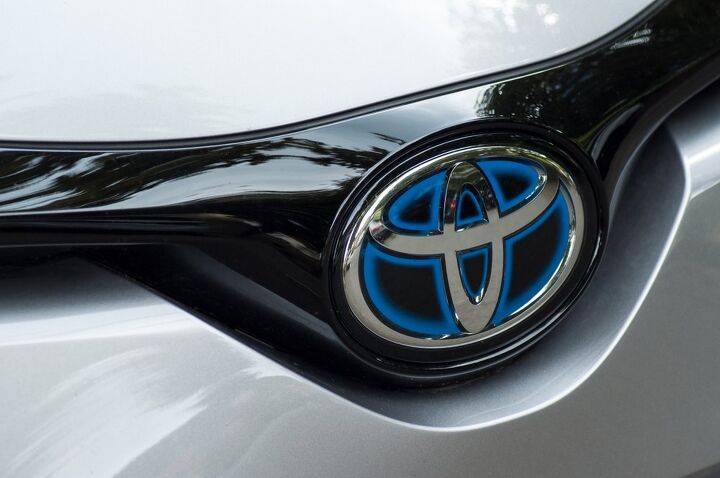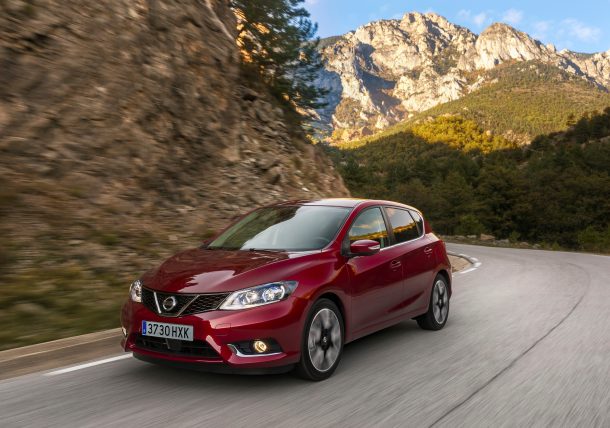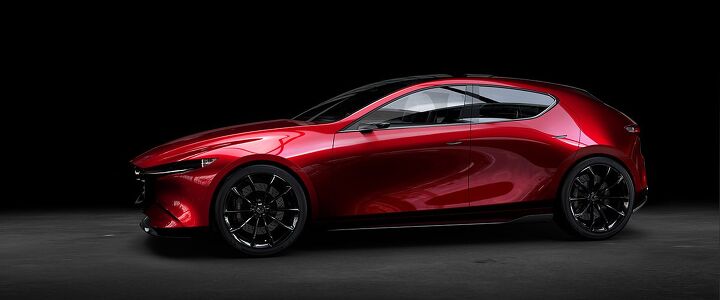#AutoIndustry
India's Auto Market Also Sucks
We’ve spent the better part of 2019 describing how unwell the automotive markets of China, Europe and North America have become, which might accidentally lead some to believe that most other markets are performing better. While Brazil expects continued expansion and a presumably healthy 2019, its rosy outlook is unique.
Japan saw a modest decline in registrations (just 0.3 percent) through the first half of the year, while Russia recorded slippage of 2.4 percent. But figures from India were far worse. In fact, the country is looking at the biggest sales slump in almost twenty years. Early estimates suggest passenger vehicle registrations may have plunged as much as 30 percent in July, after falling 17.5 percent just a month earlier. Most annual outlooks forecast a double-digit decline in overall sales.
U.S. Auto Sales Continue to Decline, July Outlook Dim
We’re now in the seventh month of declining automotive sales in the United States. However, global sales haven’t fared any better. China posted its worst-ever monthly decline more than once this year with specific brands claiming as much as 70-percent slump in sales through the first half of 2019. Things are also going badly in Europe and have been for quite some time, with June playing host to some exceedingly bad metrics.
In fact, North America has had it comparatively good since its troubles hadn’t become truly persistent until the start of this year and the monthly dip rate has been been less severe. That does not, however, make the situation in the U.S. sunshine and roses.
Toyota Announces Product Development Deal With China's BYD
On Friday, Toyota Motor Corp. announced it had signed an agreement for the joint development of battery electric vehicles (BEVs) with China’s BYD Company Ltd. Technically, BYD also made an announcement but we’re not scouring their press page on an hourly basis. Toyota gets top billing.
According to the release, the two companies will jointly develop “sedans and low-floor SUVs as well as the onboard batteries for these vehicles and others with the aim to launch them in the Chinese market under the Toyota brand in the first half of the 2020s.”
Having previously announced it was teaming up with Contemporary Amerex Technology (CATL) and Panasonic to supply and develop batteries, Toyota is trying to expand rapidly into electric development — after showing limited interest for years. We’ve no clue how these partnerships will influence the brand’s physical products outside of Asia but, at the very least, it should have fewer battery supply issues than some of the competition moving forward.
Automotive Politics: Saikawa Stays as Nissan's CEO, Renault's Next Move
Nissan’s Hiroto Saikawa appears to be staying on as CEO, despite claiming late last year that he would soon step down. While not sensational news in itself, the decision is underpinned by growing animosity between the automaker and alliance partner Renault.
Back in March, the Renault-Nissan-Mitsubishi Alliance was doing damage control following the arrest of its chief architect, Carlos Ghosn — resulting in a memorandum of understanding that aimed to restore balance between the automakers and prove to the public that they were all still friends. However, less than a month later, things began to unravel. Renault (encouraged by the French government) was, once again, pushing for integration and hoping to rejigger Nissan’s management structure.
Now the very legitimacy of Nissan’s board is being called into question.
Renault Reportedly Interested in FCA; Nissan Merger Still in the Works
Renault reportedly wants to restart merger talks with Nissan next year and is even considering a follow-up marriage with another automaker — possibly Fiat Chrysler.
While the Renault-Nissan-Mitsubishi Alliance’s official goals for 2019 are difficult to pin down, a memorandum of understanding was recently established to improve corporate synergy and reassure the public that members can play nice after the drama-filled arrest of Carlos Ghosn. However, it would seem that the long game still includes mergers.
Earlier this month, top executives from Renault, Nissan and Mitsubishi appeared together to prove to the world that the alliance is not in jeopardy. It was known that Ghosn had been advocating for a merger against Nissan’s wishes for years, and many, including the defamed former alliance boss, have speculated that the associated pressures aided in the company acting against him in order to see him brought up on charges.
Renault-Nissan-Mitsubishi Alliance Seeks 'New Start'
A meeting rumored to be targeted at developing a new board to oversee the Renault-Mitsubishi-Nissan Alliance took place earlier this week at Nissan’s global headquarters, sans Carlos Ghosn, with the automakers agreeing to a consensus-based governing strategy. At the heart of this pact is the need to diffuse tensions between France and Japan.
If you’ll recall, Nissan had grown perturbed by its perceived lack of autonomy within the alliance and repeated merger talk coming from Ghosn prior to his arrest. The man himself claimed that the corporate conflict is ultimately what led to his undoing — suggesting Nissan’s CEO simply wanted him out of the picture before he was fired.
The 2019 Geneva Motor Show Is Basically a Middle School Dance
As we get older, whole sections of our lives are mentally distilled into a handful of standout moments, accompanied by the broad strokes of shared experiences. Among them is the middle school dance, which really isn’t so much a dance as it is an opportunity for people to stand around wishing everyone would couple up and get the party started. Everyone’s hunting for a partner, but few will see that dream realized, leaving them to stand by their closest friends while they mumble “it sure would be nice to find someone to dance with” into their fifth cup of punch.
The Geneva Motor Show looked a lot like that this year. With car sales cooling, emission controls tightening, and ambitious mobility projects eating into automakers’ profit margins, many companies believe the industry is evolving. However, no one’s certain what the future holds, so they’re dabbling in everything. That’s not a sound business strategy, especially if there’s no one around to help you share the financial burden.
As a result, auto executives spent quite a bit of time in Geneva hinting that they could use a dance partner.
Tesla Announced Layoffs to Public Before Telling Employees: Report
On Thursday, Tesla announced it will finally begin delivering the Model 3’s long-awaited base trim to the public through direct online sales. By eliminating storefronts, the automaker believes it can reduce costs — helping to get that pesky profit situation under control.
Unfortunately, reports have emerged that claim those employees had no idea their jobs were on the line. Meanwhile, the company’s share price took a hit in the wake of the announcement, causing its stock to drop significantly. Since last Thursday, more than $8 billion disappeared from Tesla’s market capitalization.
Crossover Takeover: Nissan's Compact Cars Leave Europe Indefinitely
Nissan is ending sales of its last two compact cars in Europe and Russia, citing a the growing demand for crossover vehicles as the reason. The automaker stopped producing the Pulsar hatchback for Europe in June and says it will end production of the Almera sedan in Russia later this year. Both models are the sister car to our own Nissan Sentra.
The Pulsar was launched in 2014 to give Nissan a fighter for the competitive compact-featherweight category and fill a gap left in the brand’s European range in the wake of the discontinued N16 Almera. Unfortunately, it hasn’t been the sales success Nissan hoped for. The Pulsar never quite managed to match the N16’s volume. Nissan’s decision to abandon it leaves the Leaf EV as the only non-utility compact sold by the manufacturer in the region.
Real Fake News: Donald Trump and Where Japanese Manufacturers Choose to Build Their Cars
On Monday, President Donald Trump requested that Japanese automakers consider assembling their vehicles in the United States. “Try building your cars in the United States instead of shipping them over. That’s not too much to ask,” Trump told Japanese auto executives during this week’s visit. “Is it rude to ask?”
While the internet response was to immediately scoff at how little Trump knew about the industry (Japanese companies have been building automobiles in North America for decades), the reality was far more nuanced.
Taken in the broader context, Trump actually said, “Several Japanese automobile industry firms have been really doing a job. And we love it when you build cars — if you’re a Japanese firm, we love it — try building your cars in the United States instead of shipping them over. Is that possible to ask? That’s not rude. Is that rude? I don’t think so.”
Why Are Japanese Cars Starting to Look Different All of the Sudden?
While it’s impossible to imagine you haven’t already noticed, Japanese automakers are entering a new era of style. Disparate from each other and unabashedly novel, vehicles are beginning to crop up at trade shows and on the road that we couldn’t have seen coming a few years earlier.
Right now, the most obvious examples are from Toyota and Honda. But even Mazda, Subaru, and Mitsubishi have recently made a concerted effort to step up their styling game. The reason, according to manufacturers, is new competition.
It wasn’t all that long ago that Japan could offer a fairly dull automobile and bank on its superior quality and value to get prospective buyers to take it home. Things are different now. The quality gap is beginning to close and other manufacturers are getting better at providing most of the things that used to denote something as distinctively Japanese.

























Recent Comments